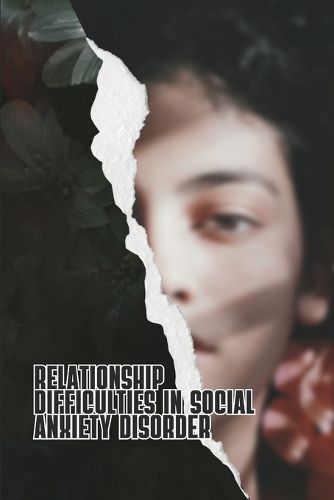Readings Newsletter
Become a Readings Member to make your shopping experience even easier.
Sign in or sign up for free!
You’re not far away from qualifying for FREE standard shipping within Australia
You’ve qualified for FREE standard shipping within Australia
The cart is loading…






This title is printed to order. This book may have been self-published. If so, we cannot guarantee the quality of the content. In the main most books will have gone through the editing process however some may not. We therefore suggest that you be aware of this before ordering this book. If in doubt check either the author or publisher’s details as we are unable to accept any returns unless they are faulty. Please contact us if you have any questions.
Little is known about the quality of socially anxious individuals' romantic relationships.
Because social anxiety is associated with negative perceptual biases toward one's own
interpersonal interactions, research on this topic needs to move beyond self-report. The
present research was aimed at better understanding of the romantic relationships of the
socially anxious, with a focus on social support and perceived criticism as assessed from
multiple perspectives. In Chapter 1, we examined longitudinal associations between
social anxiety, social support, and relationship dissolution and compared levels of support
behavior between couples high and low in social anxiety during a laboratory-based
interaction. Men's social anxiety and low perceived, but not received, support predicted
higher rates of break-up one year later. Although individuals high in social anxiety
reported lower levels of support during the interaction task than those low in social
anxiety, the two groups did not differ on partner- or observer-rated measures of support.
In Chapter 2, we examined associations between social anxiety, perceived and expressed
criticism, and reactions to criticism. Social anxiety was unrelated to perceived criticism,
but was associated with greater self-reported global expressed criticism of one's partner.
Among women social anxiety was related to being more upset when criticized by a
partner. High and low social anxiety couples did not differ in criticism during a
laboratory-based problem-solving task, though high social anxiety participants tended to be more upset by criticism. In Chapter 3, we compared levels of perceived and expressed
criticism and reactions to criticism among individuals with social anxiety disorder, with
other anxiety disorders, and with no psychiatric disorder. Individuals with anxiety
disorders showed elevated levels of interaction-specific perceived criticism, expressed
criticism, and upset and stress due to criticism relative to normal controls; however, the
two anxious groups did not differ on any measures. Upset due to criticism mediated the
association between diagnosis and relationship satisfaction. Collectively, results suggest
that social anxiety is associated with difficulties even in established romantic
relationships and point to perceptions of social support and criticism as fruitful targets for
intervention in this population.
$9.00 standard shipping within Australia
FREE standard shipping within Australia for orders over $100.00
Express & International shipping calculated at checkout
This title is printed to order. This book may have been self-published. If so, we cannot guarantee the quality of the content. In the main most books will have gone through the editing process however some may not. We therefore suggest that you be aware of this before ordering this book. If in doubt check either the author or publisher’s details as we are unable to accept any returns unless they are faulty. Please contact us if you have any questions.
Little is known about the quality of socially anxious individuals' romantic relationships.
Because social anxiety is associated with negative perceptual biases toward one's own
interpersonal interactions, research on this topic needs to move beyond self-report. The
present research was aimed at better understanding of the romantic relationships of the
socially anxious, with a focus on social support and perceived criticism as assessed from
multiple perspectives. In Chapter 1, we examined longitudinal associations between
social anxiety, social support, and relationship dissolution and compared levels of support
behavior between couples high and low in social anxiety during a laboratory-based
interaction. Men's social anxiety and low perceived, but not received, support predicted
higher rates of break-up one year later. Although individuals high in social anxiety
reported lower levels of support during the interaction task than those low in social
anxiety, the two groups did not differ on partner- or observer-rated measures of support.
In Chapter 2, we examined associations between social anxiety, perceived and expressed
criticism, and reactions to criticism. Social anxiety was unrelated to perceived criticism,
but was associated with greater self-reported global expressed criticism of one's partner.
Among women social anxiety was related to being more upset when criticized by a
partner. High and low social anxiety couples did not differ in criticism during a
laboratory-based problem-solving task, though high social anxiety participants tended to be more upset by criticism. In Chapter 3, we compared levels of perceived and expressed
criticism and reactions to criticism among individuals with social anxiety disorder, with
other anxiety disorders, and with no psychiatric disorder. Individuals with anxiety
disorders showed elevated levels of interaction-specific perceived criticism, expressed
criticism, and upset and stress due to criticism relative to normal controls; however, the
two anxious groups did not differ on any measures. Upset due to criticism mediated the
association between diagnosis and relationship satisfaction. Collectively, results suggest
that social anxiety is associated with difficulties even in established romantic
relationships and point to perceptions of social support and criticism as fruitful targets for
intervention in this population.